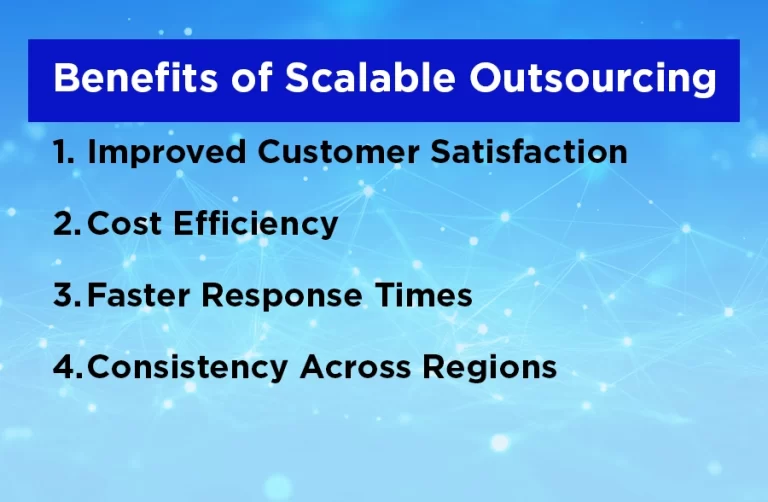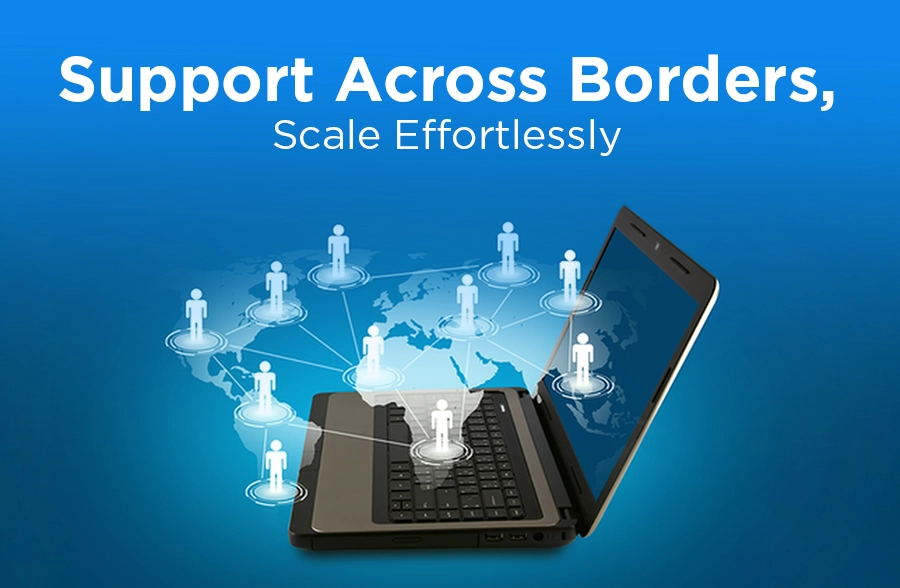Schedule a FREE call with our outsourcing expert now and get a precise quotation that meets your requirements. Don't wait - get started today!
“Customers may forget what you said, but they’ll never forget how you made them feel.”
This quote hits home for businesses trying to stand out. Especially small ones.
Small businesses dream big. But serving customers across the world? That’s a different game entirely. Global customers expect more than just answers. They want fast responses, clear communication, and a sense that you get them. No delays. No confusion. No missed context.
Falling short in any of these areas doesn’t just hurt satisfaction—it impacts your brand.
Here’s the good news: You don’t need a massive team to deliver great experiences. You just need the right outsourcing setup—tailored to your goals, your customers, and your values. Wondering how to make that happen?
Keep reading.
Why Cultural Fit Is More Important Than Fluency
Many people think speaking the same language is enough. But helping customers from different countries needs more than that. It is not only about using the right words. It is also about understanding the customer’s culture. Cultural fit means your team knows how people from other places behave and what they expect. This helps your business give better service and avoid confusion.
1. Fluency Doesn’t Equal Understanding
You might think speaking the language is enough. But supporting global customers goes beyond words.
While language fluency helps with communication, it doesn’t guarantee cultural understanding. A fluent speaker who lacks cultural awareness can still cause confusion or offense.
2. Tone and Formality Change Everything
Different cultures have different expectations for tone—what’s friendly in the U.S. might seem rude in Japan. Support agents need to adjust formality based on cultural norms to avoid miscommunication.
3. Customer Expectations Aren’t Universal
A customer in the U.S. may expect a live response within minutes, while someone in France might wait a day without complaint. Meeting expectations means understanding what customers in each region are used to.
4. Local Holidays and Business Hours Matter
Customers don’t always know or care where your team is located—they just want help when they reach out. A culturally aware outsourcing team can ensure coverage across time zones and holidays.
5. Context Makes or Breaks Service
Cultural fit allows agents to understand not just the words but the meaning behind them. It helps them respond appropriately, avoid misunderstandings, and build trust with international customers.
Scaling Support Without Losing the Brand’s Voice
As your business grows, maintaining a consistent tone becomes harder—especially when outsourcing. But growth doesn’t have to mean losing your unique voice.
-
Onboarding Must Include Brand Voice
Outsourced agents require more than product knowledge—they need to embody your brand’s voice. Providing tone guides, messaging do’s and don’ts, and example replies ensures alignment from day one.
-
Use Scenario-Based Training
Scripted replies can feel stiff or impersonal. Scenario-based training helps agents respond naturally, while still staying on-brand.
-
Customer Feedback Should Reach All Teams
Support teams often hear insights first, but those learnings should benefit everyone. Outsourcing partners can act as a bridge, ensuring feedback reaches marketing, sales, and leadership.
-
Keep Control Without Micromanaging
You don’t need to oversee every message to protect your voice. Instead, set clear guidelines, hold regular reviews, and use quality audits to stay aligned.

Mistakes That Quietly Kill Global Expansion Plans
Major problems stand out, but it’s often the subtle, repeated missteps that quietly stall your growth. These issues compound over time and slow down global success.
1. Inconsistent Messaging
Customers notice when they get conflicting answers from your team. Building a unified knowledge base ensures everyone shares the same facts, whether they’re in-house or outsourced.
2. Delayed Adaptation
Support teams must keep pace with changing customer behavior and market trends. Outsourced teams trained in agile methods can update workflows, scripts, and responses quickly.
3. Poor Integration With Existing Systems
An outsourced team that doesn’t connect with your systems adds friction instead of value. Seamless integration with your CRM, order management, and helpdesk platforms is non-negotiable.
4. Ignoring Regional Success Metrics
What works in one country may fail in another. Tracking performance by region—like CSAT scores, resolution time, and issue types—helps you improve globally, not just overall.
What Makes Global Support Truly Scalable?
Scaling support isn’t just about adding more agents. It’s about building systems and workflows that adjust as your business grows.
-
Shared Knowledge Bases That Grow with Teams
Support teams need access to real-time, centralized knowledge. A scalable partner ensures the knowledge base is easy to update and accessible to all agents.
-
Layered Support for Different Markets
Not every region needs the same level of help. A smart outsourcing partner can offer tiered support based on local demand and complexity.
-
Flexible Staffing by Time Zone
True 24/7 coverage doesn’t mean agents working nonstop. Scalable support uses data to match staffing levels with peak customer activity in each region.
-
Training That Adapts Over Time
Products and policies change—and training should, too. Scalable outsourcing partners offer ongoing training programs that keep agents current without disrupting operations.
Where Most SMEs Fail in Global Customer Care
The issue usually isn’t lack of effort—it’s the absence of structure and strategy. Without the right setup, even dedicated teams fall short.
-
Too Much Control, Not Enough Trust
Trying to micromanage from across the globe creates bottlenecks and slows response times. Instead, provide clear SOPs and trust your outsourcing partner to follow them.
-
Missing Multilingual Basics
You don’t need to cover every language, just the ones your key markets use. Even offering support in two or three core languages shows respect and boosts satisfaction.
-
No Channel Strategy
Customer habits vary—what works in one country may flop in another. Offering the right mix of channels (chat, email, phone) is key to connecting effectively.
-
Slow Response to Feedback
When customers give feedback, they expect quick action. Long delays in applying improvements show you’re not listening, which can damage trust across regions.
Why SMEs Need a Region-by-Region Game Plan
Many small and medium-sized businesses put in the effort but still fall short. The real problem usually lies in not building the right foundation for global support.
1. Too Much Control, Not Enough Trust
Trying to approve every decision from afar slows everything down and frustrates both agents and customers. A better approach is to set clear SOPs, then let your outsourcing partner act with confidence.
2. Missing Multilingual Basics
You don’t need support in dozens of languages to be effective. Just covering the top two or three used by your target markets can significantly improve customer satisfaction.
3. No Channel Strategy
Support preferences vary by region—some customers expect fast live chat, while others still prefer formal email. A one-size-fits-all approach will leave some customers feeling ignored.
4. Slow Response to Feedback
Customer feedback is a goldmine, but only if acted on quickly. Delayed changes make your support feel unresponsive, especially when global users expect rapid improvement.
Support That Grows as Your Global Reach Expands
Book your FREE 60-minute business consultation today, and let’s craft a strategy to scale your customer support globally—NO COMMITMENTS, just results-driven insights!
At Magellan Solutions, a trusted multilingual call center in the Philippines, we provide multilingual support, region-specific teams, and customized service strategies tailored to your unique needs. From streamlining your operations with seamless CRM integrations to offering flexible staffing solutions across time zones, we ensure your global support system scales with your business.
Whether you’re expanding into Asia, Europe, or beyond, we’ll help you maintain your brand’s voice while meeting diverse customer expectations. Let’s make global customer care simple, efficient, and scalable.














